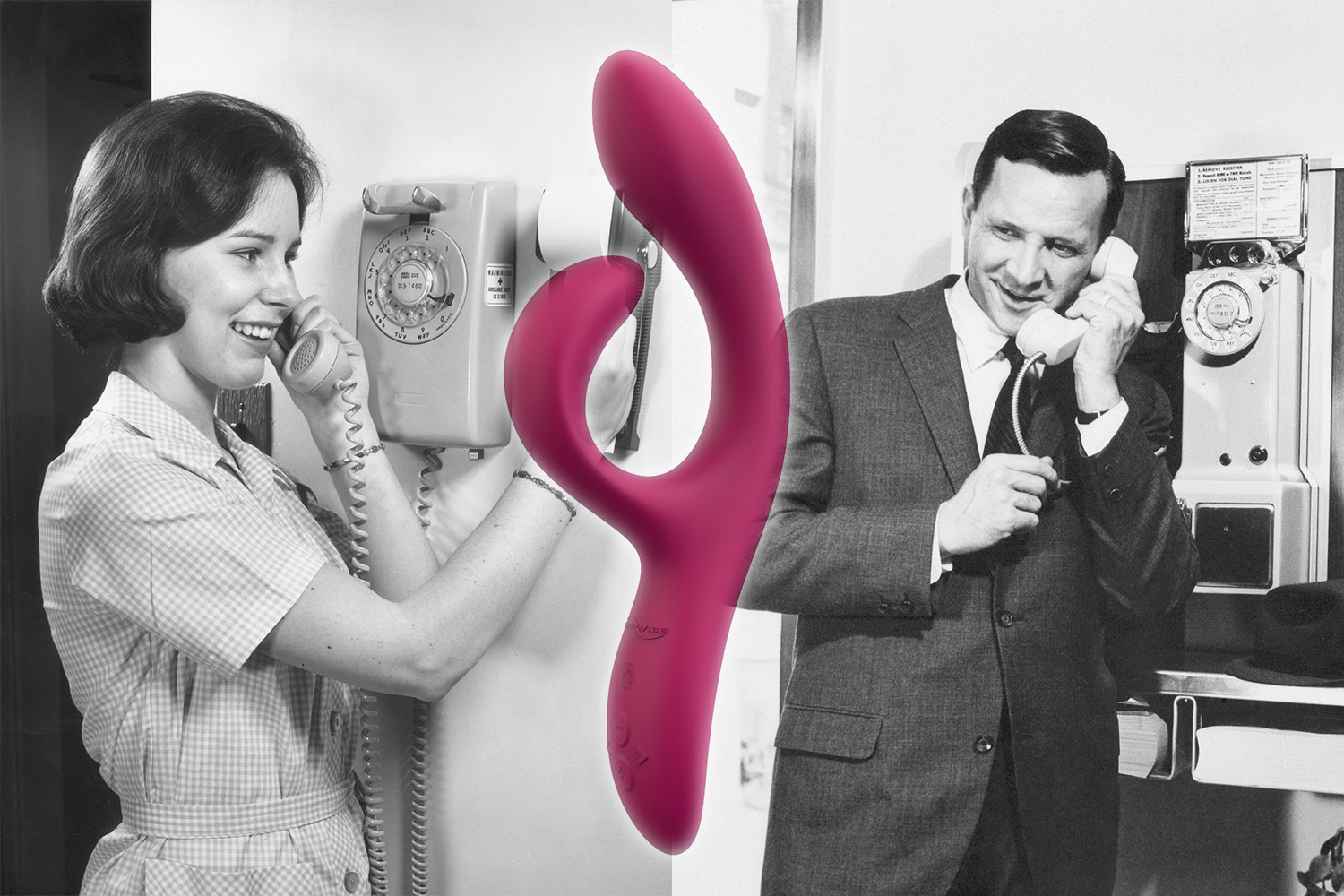I really wanted to write an article about faking orgasms without referencing When Harry Met Sally, but there’s a reason that’s impossible. The 1989 classic gave us a lot of great things: some stellar fall fashion, a particularly endearing Carrie Fisher subplot, and, yes, the most iconic fake orgasm in history.
Unfortunately, it also gave us a lot of gendered, heteronormative stereotypes about sexuality that still color our understanding of sex and relationships today. In the world according to Harry Burns and Sally Albright, men and women can’t be friends “because the sex part always gets in the way,” and when it does, it will probably end in a fake orgasm on the woman’s part, much to the blissful ignorance of her male partner who consistently orgasms with ease because all men do all the time, right?
While Sally’s stunt at Katz’s Deli may have done some important work in exposing an orgasm gap long obscured by fake female orgasms, the scene’s lasting legacy continues to code fake orgasms as a distinctly female issue, one of which men — doddering, effortlessly orgasming fools they be — are completely unaware.
The reality, of course, is that men can and do fake orgasms as well. A recent survey from sexual wellness company Lora DiCarlo found that Americans are faking orgasms around 17 percent of the time, and while women still take the lead, faking 18 percent of the time, men aren’t as far behind as stereotypes might lead you to believe. The survey found that men are faking orgasms around 16 percent of the time — nearly as often as women. And they’d probably be doing it even more often, says sex therapist Ian Kerner, PhD., if it weren’t for one somewhat obvious obstacle.
Faking an orgasm is easy; faking ejaculation is hard
“It’s much harder for men to fake an orgasm than it is for women,” says Kerner. “If men had generally internal orgasms in the way that women do, I think more men probably would be faking it more regularly.”
But despite the obvious issue of physical evidence — or a lack thereof — plenty of men still manage to pull off a fake orgasm. It tends to be easier during vaginal intercourse, during which a man can either fake ejaculate into his partner or discreetly tie off and dispose of an empty condom, but many men also have a few go-to white lies they can present if questioned.
“It’s possible to say, ‘Oh, I had an orgasm, but it was a small orgasm,’ or, ‘I just masturbated today, so there’s a very low volume of ejaculate,’” explains Kerner, adding that some men will try to pull off similar lies even under less plausible circumstances.
“It’s obviously more challenging if the orgasm was meant to happen via manual stimulation or oral sex,” he says. “But even then, some men will try and resort to similar excuses,” sometimes even blatantly gaslighting their partners. “‘I had an orgasm, just maybe not in the way that you would notice,’ or, ‘I don’t know what you’re experiencing, but I had an orgasm.’”
Dubious as these excuses seem, they’re probably more effective than one might assume. While the dominant When Harry Met Sally narrative paints men as comically incapable of distinguishing between real and fake orgasms in their female sex partners, it turns out women aren’t immune to similar deceptions.
“I think in general we tend to be trusting people,” says Kerner. “Even in light of our suspicions, sometimes we hear what we want to hear.”
In fact, that very narrative of women having the monopoly on fake orgasms may have actually lured many of those women into a false sense of security that’s only made them more willing to believe their male partners would never fake it. According to the Lora DiCarlo survey, 56 percent of women are confident their partners never fake it, while only 38 percent of men believe the same.
What’s the point of faking it?
Again, contrary to the traditional “men are from Mars” stereotypes reinforcing a binary conception of gender that paints men and women as polar opposites, we have more in common than 20th-century rom-coms wanted us to believe. Not only do men and women both fake orgasms, but we tend to do it for similar reasons.
“The reasons are very similar for why men and women fake it,” says Kerner. Essentially, a man having trouble reaching orgasm may simply fake it “to bring something to an end that’s just not happening for them” without bruising their partner’s ego.
While the orgasm gap means women may have more occasion to fake orgams, Kerner posits that men may actually feel more pressure to fake it thanks to societal messaging that codes virility as a chief pillar of masculinity.
“It’s sometimes a feeling of their own sense of failure against internalized expectations,” says Kerner. “Like, ‘Shit. If I don’t have an orgasm, what kind of man am I?’”
Increased pressure on men to orgasm may also stem from a broader sexual script, dominant in heterosexual dynamics, in which successful sexual intercourse is defined by the male orgasm.
“Unfortunately, most people view sex as ‘over’ when a man ejaculates,” says sex educator Kenneth Play. Moreover, he adds, “There’s an expectation that it’s easy for guys to come,” which may make it even more difficult for men to admit they’re having trouble reaching orgasm, especially to a female partner.
While our post-When Harry Met Sally world seems to have made some strides in encouraging women to be more honest and communicative about what they need in order to actually reach orgasm, we tend to assume that men are automatically having their every sexual need fulfilled just by virtue of being men.
“I don’t think there’s a language for men right now, a cultural acceptance for men to say, ‘This is not arousing enough,’” says Kenneth.
The most obvious method of preventing orgasm fraud is an approach to communication that allows partners of all genders to be open about their needs and desires in bed, and to speak up when those needs aren’t being met without fear of hurting their partners’ feelings.
“I think we all have more sexual resilience than we give ourselves credit for,” says Kerner. “If we are communicating and we recognize that sex is a multidimensional, multi-faceted experience that includes many types of pleasure and connection, then we get to learn from sex.” Meanwhile, he adds, “If we deprive ourselves of communication in these teachable moments, we’re not really developing our relationship or learning about each other’s needs.”
However, the key to ending fake orgasms for good may actually lie in dismantling broader social-sexual beliefs that govern our understanding of what sex can and should look like. If we stopped thinking of orgasms as the be all end all of successful sex, people of all genders would probably fake them a lot less. Kerner argues for a revision of the “narrow, rigid expectations around what sex should be,” one that doesn’t “define sex in terms of orgasm,” but rather encourages sex partners “to appreciate all of the various aspects of sex and to recognize that sometimes sex just won’t include orgasms for any number of reasons.”
“The more we can deconstruct whatever rigid ideas we have of what sex is going to be, the more flexibility we have,” says Kerner. “And the more flexibility we have, the more opportunities for success rather than failure.”
Whether you’re looking to get into shape, or just get out of a funk, The Charge has got you covered. Sign up for our new wellness newsletter today.


























